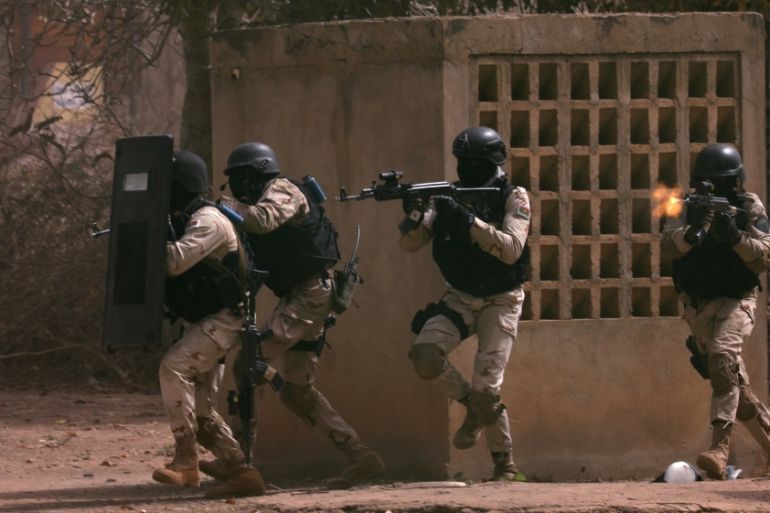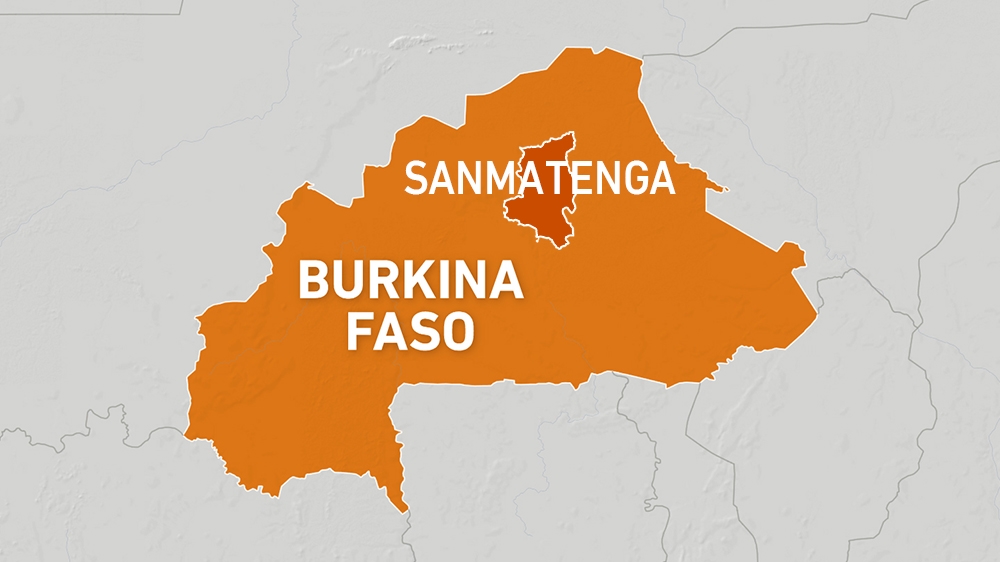Burkina Faso: 2 days of mourning after attack kills 36 civilians
‘Terrorist’ attack on village market in Sanmatenga province leaves dozens of people dead, government says.

Burkina Faso‘s government has declared two days of national mourning following an attack on two villages, in which at least 36 civilians were killed, in the latest violence to rock the country.
A “terrorist group” on Monday killed 32 civilians when they attacked and burned a market in Nagraogo village before killing four more people in Alamou village, Communications Minister Remis Fulgance Dandjinou said in a statement late on Tuesday. Three other people were wounded in the attacks in Sanmatenga province, he added.
Keep reading
list of 3 itemsWhat’s behind the upsurge in violence in the Sahel?
Lebanon is experiencing a social revolution
The incidents prompted hundreds of people to flee the area and take refuge in the city of Kaya, residents told AFP news agency.
Dandjinou expressed the government’s “consternation and anger” over the attack, while President Roch Marc Christian Kabore announced a two-day period of mourning – on Wednesday and Thursday – during which flags will be flown at half-mast and festivals will be prohibited.

Burkina Faso, as well as neighbouring Mali and Niger, has seen frequent attacks by armed groups since the start of 2015 when violence began to spread across the Sahel region.
According to the United Nations, some 4,000 people were killed in attacks in the three countries last year.
Many areas of the semi-arid region that have seen the most fighting are severely underdeveloped, with armed groups exploiting poverty as well as religious and ethnic divisions to recruit fighters and stoke more violence. In Burkina Faso, tensions have been particularly high between the majority and politically dominant Mossi group and the minority Fulani group. Private feuds between individuals can also play a role in the worsening security situation, analysts say.
According to the Armed Conflict Location & Event Data Project (ACLED), last year there were more than 570 incidents in Burkina Faso’s conflict, with only a fraction claimed by armed groups – among them, Ansural Islam, Jama’at Nasr al-Islam wal Muslimin (JNIM) and Islamic State in the Greater Sahara (ISGS).
Volunteer plan
Faced with “repeated attacks” against civilians, Burkina Faso’s government also launched an appeal for the people’s “frank collaboration” with security forces.
On Tuesday, Parliament adopted unanimously a law allowing for the recruitment of local volunteers in the fight against armed groups.
According to a document seen by the AFP, volunteers aged over 18 will be recruited in their regions in agreement with local populations.
They will be given 14 days of military training, after which they will be given small arms and communication equipment.
|
|
The recruits would be expected to conduct surveillance and provide information and protection for their local communities in the event of an attack while waiting for security forces to deploy, according to Defence Minister Cheriff Sy.
Burkina Faso’s army is ill-equipped and poorly-trained to deal with the threat posed by armed groups in the country.
However, in recent months they have had a series of successes, claiming to have killed 100 fighters in operations.
There are 4,500 French troops deployed in the Sahel region as well as a 13,000-strong UN peacekeeping force in Mali to fight rebel groups, backing up national forces of the regional G5 organisation – Burkina Faso, Chad, Mali, Mauritania and Niger.
Following the latest attack, European Commission diplomatic spokeswoman Virginie Battu-Henriksson said it was a reminder of the “urgency” of a plan to increase European security and development action in the region.
“Thoughts for the families of the victims of this new terrorist attack in a market in Burkina Faso,” she said on Twitter.